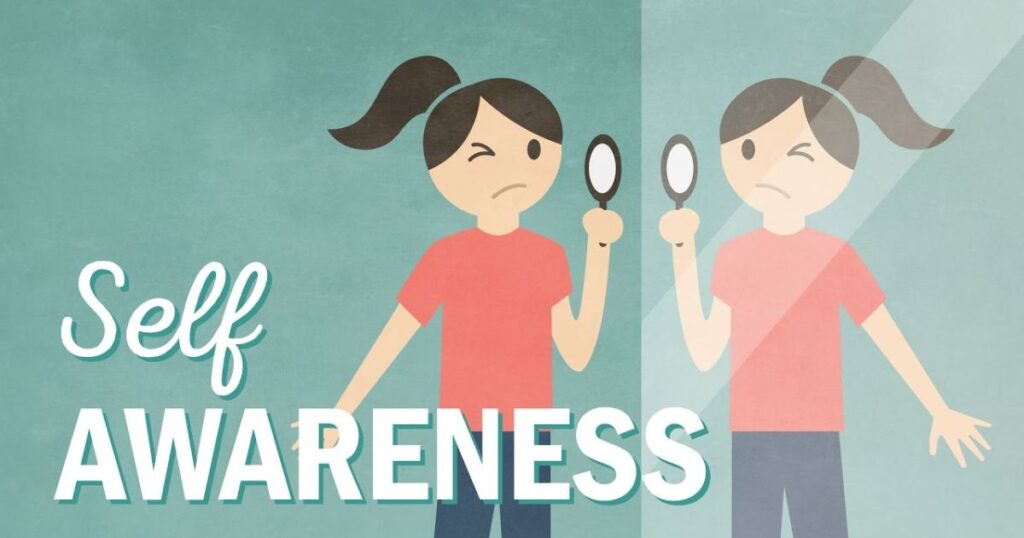Self-awareness forms the foundation of personal growth and emotional intelligence. The phrase “I Feel Myself” represents more than casual expression—it embodies a profound connection to our inner experiences and authentic self-recognition.
This comprehensive examination explores the multifaceted nature of this expression, analyzing its various applications and significance in contemporary communication and personal development.
What does “feel yourself” mean?
Self-perception encompasses the ability to recognize and interpret internal signals, both physical and emotional. The expression “feel yourself” fundamentally relates to heightened awareness of one’s current state, encompassing bodily sensations, emotional responses, and mental clarity.
This phrase functions as more than simple self-description—it represents a conscious acknowledgment of personal experience. The meaning extends beyond surface-level awareness to include deeper recognition of authentic feelings and responses.
Context remains crucial when interpreting this expression, as various situations may require different understanding of the intended meaning. Mindful observation of circumstances ensures appropriate interpretation and response.
The Deeper Meaning of “I Feel Myself” in Different Contexts
| Context | Application of “I Feel Myself” | Practical Example |
|---|---|---|
| Physical Awareness | Recognition of bodily responses and sensations | “I feel myself becoming more alert after morning coffee.” |
| Emotional Recognition | Acknowledgment of shifting emotional states | “I feel myself developing greater patience through practice.” |
| Mindfulness Application | Present-moment awareness during contemplative practices | “I feel myself settling into deeper focus during study sessions.” |
| Confidence Expression | Demonstration of self-assurance and personal pride | “I feel myself today—everything aligns with my authentic self.” |
| Interpersonal Connection | Enhanced emotional availability in relationships | “I feel myself becoming more vulnerable and open with trusted friends.” |
| Personal Insight | Active engagement in self-reflection and understanding | “I feel myself recognizing patterns in my decision-making process.” |
The Many Shades of “I Feel Myself”

Personal expression through this phrase reveals remarkable versatility in human communication. The statement transcends simple description, offering a window into the complex landscape of human experience and self-understanding.
Tuning into Physical Sensations
Physical awareness represents one primary application of this expression. Common examples include:
- Recognizing fatigue: “I feel myself growing tired after the intensive workshop”
- Acknowledging comfort: “I feel myself settling into the familiar environment”
- Noticing energy shifts: “I feel myself becoming more energized during morning exercises”
These applications demonstrate body awareness and the conscious recognition of physiological responses to environmental factors and activities.
Emotional Self-Awareness
Emotional intelligence emerges through mindful attention to internal states and responses:
- Confidence building: “I feel myself gaining assurance in challenging situations”
- Stress recognition: “I feel myself becoming overwhelmed by multiple deadlines”
- Calm restoration: “I feel myself finding peace through systematic breathing techniques”
This usage reflects sophisticated emotional processing and the ability to monitor internal psychological changes with clarity and precision.
“I Feel Myself” and Self-Confidence
The Confidence Connection
Authentic self-expression reaches its peak when individuals genuinely connect with their inherent worth and capabilities. This connection manifests as a radiant confidence that emerges from within, rather than depending on external validation or approval.
Contemporary society often emphasizes external appearances and social media presentations, making genuine self-acceptance increasingly valuable. When someone genuinely feels themselves, they access their authentic identity and express it without apology or hesitation.
Body Positivity and Self-Acceptance
Modern applications of this expression frequently align with body positivity movements and self-acceptance practices. When individuals express feeling themselves, they often communicate a profound acceptance of their physical appearance, personality traits, and unique characteristics.
This representation of self-love encourages others to embrace their own authenticity and reject societal pressures to conform to unrealistic standards or expectations.
“I’m feeling myself today!”
This variation emphasizes personal empowerment and self-recognition. When someone uses this phrase, they communicate exceptional satisfaction with their appearance, performance, or overall state of being. The expression invites others to witness and celebrate their confident energy and positive self-regard.
Why “I Feel Myself” Matters?

Understanding and appropriately using this expression provides several significant advantages for personal development and interpersonal communication:
Enhanced Self-Awareness: Regular attention to internal experiences strengthens the connection between conscious awareness and authentic feelings, leading to improved decision-making capabilities and emotional regulation.
Improved Communication: Accurate description of physical and emotional states enables clearer expression of personal needs, boundaries, and expectations in various relationships and professional situations.
Mindfulness Integration: This phrase naturally encourages present-moment awareness and internal observation, supporting meditation practices and stress reduction techniques.
Emotional Regulation: Recognition of personal reactions and responses facilitates better management of challenging emotions and situations, promoting psychological resilience and adaptive coping strategies.
Usage of “I Feel Myself” in Everyday Language
Practical application of this understanding enhances daily communication and personal development practices through various approaches:
Daily Self-Assessment: Regular internal check-ins using this framework promote continuous self-awareness and emotional monitoring throughout daily activities and interactions.
Written Reflection: Incorporating this expression in journaling practices helps track emotional patterns, physical responses, and personal growth over extended periods.
Interpersonal Communication: Using this phrase when discussing personal needs or establishing boundaries creates clearer communication and reduces misunderstandings in relationships.
Contemplative Practices: Integration into meditation or mindfulness routines deepens self-connection and enhances the quality of contemplative experiences.
‘I feel myself good’ and ‘I feel myself well’ in English
Standard English usage typically favors simpler constructions for expressing positive states. Native speakers commonly use “I feel good” or “I feel well” rather than including the reflexive pronoun in these contexts.
The distinction between these phrases reflects grammatical precision: “I feel good” expresses general positive feelings, while “I feel well” traditionally indicates good health or physical condition.
For emphasis on personal experience, alternatives such as “I myself feel excellent” or “Personally, I feel wonderful” provide clearer communication while maintaining grammatical accuracy and natural flow.
I feel myself comfortable or I feel comfortable?
Proper English construction requires “I feel comfortable” rather than “I feel myself comfortable.” The verb “feel” in this context functions as a linking verb that connects the subject directly to the descriptive adjective without requiring intermediate pronouns.
Standard expressions include:
- “I feel comfortable in this environment”
- “I am comfortable with this arrangement”
- “I’m feeling comfortable about the upcoming presentation”
For personal emphasis, alternatives such as “I myself feel comfortable” or “Personally, I feel completely comfortable” maintain grammatical accuracy while highlighting individual perspective.
The Science Behind Self-Awareness
Interoception represents the scientific foundation underlying self-awareness practices. This neurological capacity involves perceiving and interpreting internal bodily signals, including heartbeat, breathing patterns, muscle tension, and digestive processes.
Research demonstrates that individuals with well-developed interoceptive abilities often exhibit superior emotional regulation and enhanced decision-making capabilities. These skills contribute to improved mental health outcomes and increased resilience during challenging circumstances.
Developing self-awareness through practices like mindful attention to internal states can strengthen these cognitive functions over time, requiring consistent practice and patience for optimal results.
Cultural Perspectives on “I Feel Myself”
Cross-cultural examination reveals varying interpretations and applications of self-awareness expressions across different linguistic and cultural contexts. Some languages lack direct equivalents, while others contain similar phrases with distinct cultural connotations and usage patterns.
These linguistic variations reflect different cultural approaches to self-expression, emotional communication, and personal identity. Understanding these differences enhances intercultural communication and promotes appreciation for diverse perspectives on self-awareness and personal expression.
Psychological Benefits of Self-Awareness

Enhanced self-understanding provides numerous psychological advantages that improve overall well-being and interpersonal effectiveness:
Emotional Regulation: Advanced self-awareness enables recognition of emotional patterns before they escalate, allowing for proactive management of challenging feelings and improved response control.
Empathy Development: Understanding personal emotional experiences creates a foundation for recognizing and relating to others’ feelings, enhancing interpersonal relationships and communication effectiveness.
Anxiety Management: Early recognition of anxiety symptoms through self-monitoring enables timely intervention and prevents escalation of stress responses.
Conflict Resolution: Self-awareness enhances the ability to manage disagreements constructively by maintaining emotional balance and focusing on productive solutions rather than reactive responses.
| Benefit | Detailed Explanation |
|---|---|
| Emotional Control | Self-monitoring enables proactive management of emotional responses |
| Enhanced Empathy | Understanding personal emotions facilitates recognition of others’ feelings |
| Stress Prevention | Early awareness of anxiety signs allows for timely intervention strategies |
| Improved Communication | Self-awareness enhances ability to navigate difficult conversations effectively |
“I Feel Myself” in Relationships
This expression plays a significant role in interpersonal dynamics and relationship development through various applications:
Intimacy Enhancement: Articulating personal experiences and internal states fosters deeper emotional connections and mutual understanding between partners.
Conflict Prevention: Using self-focused statements rather than accusatory language helps de-escalate disagreements by emphasizing personal experience over blame or criticism.
Empathy Building: Heightened self-awareness often correlates with improved ability to understand and respond appropriately to others’ emotional needs and experiences.
The Future of Self-Awareness
Digital advancement continues to reshape human interaction patterns, making self-awareness practices increasingly valuable for maintaining authentic connections with personal experience and relationships.
Expressions like “I Feel Myself” serve as important reminders to maintain contact with internal experiences despite external technological distractions and demands for constant connectivity.
Common Pitfalls and Misinterpretations
Common Mistakes and How to Avoid Them
Proper usage requires understanding specific contexts and grammatical structures to ensure clear and effective communication:
Mistake #1: Applying the phrase to simple emotional states ❌ Incorrect: “I feel myself excited about the weekend.” ✅ Correct: “I feel excited about the weekend.” or “I feel myself becoming more excited as the weekend approaches.”
Mistake #2: Omitting action or process words ❌ Incorrect: “I feel myself at the beach.” ✅ Correct: “I feel myself relaxing at the beach.”
Mistake #3: Using for external observations or judgments ❌ Incorrect: “I feel myself that this decision was correct.” ✅ Correct: “I feel that this decision was correct.” or “I feel myself becoming more confident about this decision.”
The expression focuses on internal experience rather than external observations or judgments about circumstances or other people.
Tips for Correct Usage
Mastering this expression requires understanding its specific applications and avoiding common grammatical errors:
Physical Description Focus
✅ “I feel myself warming up during exercise” – Excellent usage ❌ “I feel myself enthusiastic” – Grammatically incorrect
Action-Oriented Language
Always combine with progressive action words (ending in -ing) that describe ongoing physical or psychological processes for maximum clarity and grammatical accuracy.
Emotional-Physical Connection
For feelings that manifest physically, appropriate examples include:
- “I feel myself relaxing after stressful situations”
- “I feel myself tensing during difficult conversations”
Avoiding Common Errors
Direct emotional statements require simpler constructions:
- “I feel happy about recent developments”
- “I feel concerned about upcoming changes”
The Fundamental Principle
Remember that this expression describes internal processes and bodily experiences rather than pure emotional states or external judgments.
Consistent Practice
Regular application of these guidelines develops natural, effective usage patterns that enhance both personal reflection and interpersonal communication.
How do you always feel yourself?

Consistent self-awareness requires dedicated practice and intentional attention to internal experiences. Begin by establishing regular self-reflection periods to develop stronger connections with personal thoughts, feelings, and physical sensations.
Monitor emotional states throughout daily activities while accepting feelings without judgment or criticism. Engage in activities that align with personal values and bring genuine satisfaction, reinforcing authentic identity and self-understanding.
Prioritize mental wellness through consistent self-care practices, meditation, professional counseling when appropriate, and other supportive activities. Embrace both strengths and limitations, fostering complete self-acceptance rather than conditional approval.
Authentic self-feeling differs from arrogance—it represents genuine comfort with personal identity and consistent alignment between internal values and external actions. Regular internal check-ins help maintain this alignment and support continued personal growth.
Most popular Queries
Is “I feel myself” grammatically correct?
The phrase maintains grammatical validity in English, particularly when describing heightened self-awareness, mindful experiences, or conscious attention to internal states and processes.
Can I use “I feel myself” for emotions?
Simple emotional expressions work better with direct constructions like “I feel happy” or “I feel anxious.” Reserve “I feel myself” for deeper self-awareness experiences and physical sensations.
How is it different from “I feel good”?
“I feel myself” emphasizes internal awareness and identity connection, while “I feel good” simply expresses a pleasant or positive general state without deeper self-reflection.
Can it be used in mindfulness or meditation?
Absolutely appropriate for contemplative practices when focusing on bodily sensations, breath awareness, and present-moment grounding techniques during meditation sessions.
How does “I feel myself” show self-confidence?
When someone expresses “I feel myself today,” they communicate authentic confidence and comfortable acceptance of their identity, appearance, and capabilities without external validation needs.
Is the phrase used in other languages?
Many languages contain similar expressions, though cultural meanings, usage patterns, and social connotations vary significantly across different linguistic and cultural contexts.
Can “I feel myself” help in relationships?
This phrase strengthens relationships by encouraging deeper self-awareness and promoting honest emotional expression, leading to more authentic and meaningful interpersonal connections.
What are common mistakes with “I feel myself”?
People frequently misapply it to basic emotional states when the expression serves better for describing deeper self-awareness experiences and mindful bodily sensations.
Conclusion
Examining the phrase “I Feel Myself” reveals its significance as more than casual expression—it represents a powerful tool for deepening self-understanding and enhancing personal awareness. Incorporating this concept thoughtfully into daily life creates opportunities for improved self-awareness, clearer communication, and richer emotional experiences.
The next occasion you find yourself using this expression, take a moment to appreciate the profound depth of what you’re communicating and the potential for greater self-connection it represents.

Hello, I’m Daisy Sadie, a writer at Azaadpuns. I explore the dynamic world of puns and wordplay, delivering captivating linguistic twists that will make you laugh and groan. Join me on Azaadpuns.com for the latest in clever wordplay that makes language fun again.

